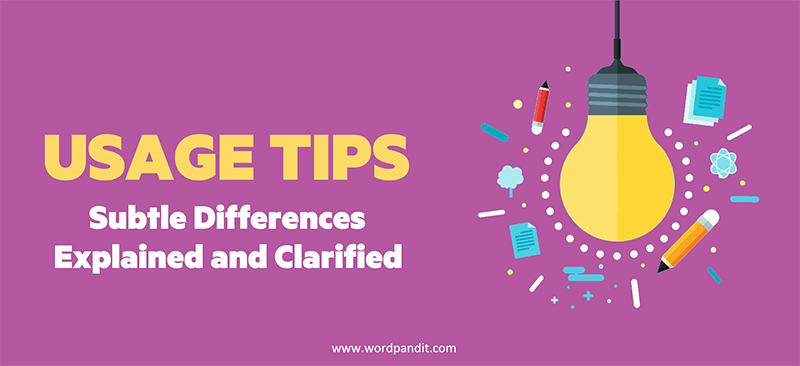Ecology vs. Environment: Clearing Up the Confusion 🌿🌍
Have you ever found yourself stumbling over the words “ecology” and “environment,” wondering if they mean the same thing or how they differ? 🤔 You’re not alone! These terms are often used interchangeably, but they actually have distinct meanings. Knowing the difference is important for understanding how we interact with the world around us, so let’s dive in and break it down. 🌱✨
Imagine you’re at a dinner party, trying to impress a group of nature-loving friends. 🥗 Someone says, “The environment needs our help!” 🌎 and another replies, “Yes, and ecology plays a big role in that.” 🌳 You nod along, but in your head, you’re wondering: “Wait… aren’t they kind of the same thing?” Don’t worry—by the end of this article, you’ll be the one leading that conversation! 😄💬
What Is Ecology? 🐾
Definition: Ecology is the branch of biology that studies how living organisms interact with each other and their surroundings. 🐦🌾 It’s all about understanding the connections between different forms of life and how they depend on each other for survival.
Ecology can be incredibly fascinating because it shows us just how interconnected everything truly is. Whether it’s the bees pollinating flowers, or the predators keeping prey populations in check, every living thing plays a role in maintaining balance. 🐝🌸🦁 Ecology helps us see the bigger picture of life on Earth and understand how different species, including humans, fit into the natural world.
Pronunciation: i-‘kä-lə-jē 📢
Etymology: The word “ecology” comes from the Greek words “oikos,” meaning “house” or “habitat,” and “logos,” meaning “study.” So, ecology is essentially the study of how organisms live together in their “house.” 🏡🔍 Just as every family has its unique dynamics within a house, the natural world has its own dynamics between species living in different habitats.
Usage Example: The ecology of a rainforest includes all the plants, animals, and microorganisms interacting with each other and with the environment. 🌿🐒🐜 In other words, ecology is like a complex web of life, where every organism plays an important role in maintaining the health of the entire system.
Synonyms: Ecosystem science, biological interactions 🌍🔄, environmental biology
Antonyms: None directly, but “individual study” might work as a contrasting concept since ecology emphasizes interconnectedness. 🤷♂️ Unlike studying a single species in isolation, ecology looks at the big picture.
What Is the Environment? 🌍
Definition: The environment refers to all the external conditions, both living (biotic) and non-living (abiotic), that affect an organism. 🌱💧🌞 It’s the sum total of everything that surrounds us—air, water, soil, other organisms, and even the climate—all these factors make up the environment.
The environment is what provides the resources necessary for survival—food, water, shelter, and even the conditions needed for growth and reproduction. It’s crucial to understand that the environment isn’t static; it’s always changing, and organisms must adapt to these changes to survive. 🌿⚡
Pronunciation: in-‘vīrən-mənt 📢
Etymology: The word “environment” has roots in the French word “environner,” meaning “to surround.” Essentially, it’s everything that surrounds a living being. 🔄🌿 It includes not only the physical elements like soil and water but also other living organisms that interact with one another in various ways.
Usage Example: The environment of a desert is characterized by its arid climate, sparse vegetation, and unique wildlife. 🏜️🌵🐫 Deserts are extreme environments where only specially adapted organisms can thrive, showcasing the importance of environmental factors in determining which organisms live where.
Synonyms: Surroundings, habitat, ecosystem 🌎🏠, natural world
Antonyms: None directly, but “internal conditions” might serve as a contrasting idea. 🤔 The environment is what’s outside an organism, while internal conditions refer to what’s happening inside.
How Are Ecology and Environment Different? 🤷♀️➡️🌍
Simply put, ecology is the study, while the environment is what’s being studied. 📝🔍 Ecology focuses on the relationships and interactions between living things and their environment. Meanwhile, the environment is the stage where all these interactions take place—it’s the sum of all the conditions that affect living organisms. 🎭🌱
In other words, ecology is all about studying the dance, while the environment is the dance floor. 🌾💃 Ecology looks at the way living things interact with each other and their non-living surroundings, whether it’s animals relying on plants for food, or microorganisms breaking down organic material.
Real-Life Example: If you think of the environment as the theater 🎭, then ecology is the play that’s happening within it. The environment sets the scene with props like climate, soil, and water, while ecology tells the story of how the characters—plants, animals, and microorganisms—interact. 🌳🐿️🦋 The relationships and connections among the characters—how they help, compete with, or rely on each other—are what make ecology so fascinating.
Contextual Usage 📚
Consider these two sentences:
- “Scientists are studying the environment of the coral reef to understand its health.” 🐠🏝️ Here, the environment includes all the physical and biological elements that make up the coral reef system—water quality, temperature, and the organisms that inhabit it.
- “The ecology of the coral reef reveals intricate relationships between fish, algae, and coral.” 🐟🌿🤝 Ecology looks at how all these organisms interact, including how fish depend on coral for shelter and how algae might compete with coral for space.
In the first example, we’re talking about the external conditions that affect the reef. In the second, we’re discussing the complex web of interactions among the organisms that live there. 🌊🔄 Ecology helps us understand how every organism is connected and how the health of one impacts the entire system.
Mnemonic to Remember 💡
Think of ecology as the study of everything living and how it connects. 🌱🔗 Meanwhile, the environment encompasses all the things that surround us—both living and non-living. 🌀🌱 Remember, the environment is like the big picture, while ecology is like zooming in to understand the relationships within that picture. 🌍🔍
Related Word Pairs 📖
- Climate vs. Weather 🌦️☀️ – Climate refers to long-term patterns, while weather is what’s happening right now.
- Habitat vs. Niche 🦊🏠 – A habitat is where an organism lives, while a niche is its role in that environment.
- Species vs. Population 🐅👥 – A species is a group of similar organisms, whereas a population refers to members of the same species living in a specific area.
Wrap-Up 🎉
By now, you should feel confident about distinguishing between ecology and environment. Ecology is all about interactions—the living web of connections—while the environment is everything that surrounds and impacts those connections. 🌿🔗 The environment provides the backdrop, and ecology is all about understanding the story happening on that backdrop. 🌍📖 Next time someone mentions these words, you’ll know exactly how to join the conversation with clarity and insight! 🗣️✨ You’ll be able to explain how important it is to protect the environment and understand ecology to maintain balance in nature. 🌱💚
Test Your Knowledge: Ecology vs. Environment Quiz
1. The ___ of the forest includes interactions between birds, trees, and insects. 🌳🐦🍂
2. The ____ of a wetland includes its water quality, plant life, and climate. 🌿💧
3. Ecology only studies non-living factors in an area. ❌🔬
4. Which of the following is the correct synonym for “Surroundings”? 🌍🔄
5. To understand how pollution affects marine life, scientists must examine both the ___ and the ecological impact. 🌊🐠🌱
6. Which of the following terms refers to both living and non-living factors? 🌞🌱
7. The ___ of a city includes its noise levels, pollution, and climate, whereas the ___ studies how animals like birds adapt to these conditions. 🚦🐦🏙️
8. Which term originates from a word meaning “house” or “habitat”? 🏡📚
9. The environment can be both biotic and abiotic. ✅🌿🌊
10. Researchers are interested in the ___ factors affecting the lake, as well as the ___ relationships among species. 🌊🔬🐟













